Recent articles
-
Friday, June 3, 2011 - 5:23pm
-
Sunday, May 29, 2011 - 2:54pm
-
Friday, May 27, 2011 - 5:21pm
-
Thursday, May 26, 2011 - 9:07am
-
Monday, May 23, 2011 - 9:10am
-
Sunday, May 22, 2011 - 4:54pm
-
Friday, May 20, 2011 - 4:07pm
Recent comments
-
90 mph solar car makes Chevy Volt look tameIt sound a bit unrealistic ...Saturday, June 4, 2011 - 9:46am
-
Sprint putting money where its mouth is with phone buyback improvementsIt's a good initiative but at ...Saturday, June 4, 2011 - 3:30am
-
Solar cell in Apple iPhone 5, & next iPad may give Apple a leg upIf Apple decides to use the ...Saturday, June 4, 2011 - 3:22am
-
Mini’s electric scooter combines smartphone tech & sex appealElectric scooter are becoming ...Friday, June 3, 2011 - 3:11am
-
Barnes & Noble’s Nook hits Best Buy, new versions coming soonhopefully soon they will have ...Thursday, June 2, 2011 - 1:02pm
-
BMW chasing electric car mark with the BMW i, but it may be too slowBMW has given some good ...Thursday, June 2, 2011 - 2:54am
About Tainted Green
Why Tainted Green? Literally, green is only a color. But in typical human fashion we've pumped a cacophony of additional meanings and symbolism into the word. Green has become a marketing tool used by companies with impunity to wrap their products in a balmy haze of "ethical" and "conscientious" approval.
That's where Tainted Green steps in. We are seekers of truth, and we support the fundamental drivers behind the green movement. Ideas like permaculture, renewable energy, and recycling make sense, but companies that express support for green without a wholesome process behind it have tainted the meaning of green. And so, our focus is to create green content that pushes the ideology forward while pointing out which parts look like this year's marketing baggage. Welcome to Tainted Green, where we focus on unearthing the truth about green.

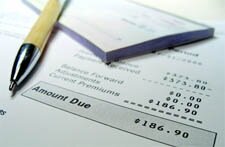
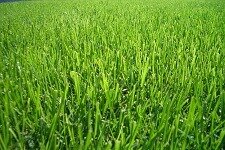 The snow and ice are finally gone, the birds are singing, and trees are beginning to leaf out. It’s that season again – lawn care season. Consumers spent $35 billion in 2007 for lawn and garden products. So we get better lawns from it right? Not really.
The snow and ice are finally gone, the birds are singing, and trees are beginning to leaf out. It’s that season again – lawn care season. Consumers spent $35 billion in 2007 for lawn and garden products. So we get better lawns from it right? Not really.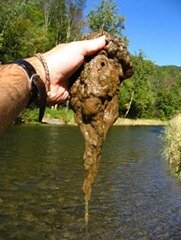
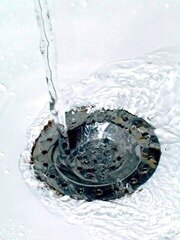 People in the US consume eight billion gallons of water in 50 million bottles annually, in spite of an abundance of nearly free, good tasting tap water. Instead of buying bottled water, a reusable water bottle and a little planning can go a long way to both save money and the environment.
People in the US consume eight billion gallons of water in 50 million bottles annually, in spite of an abundance of nearly free, good tasting tap water. Instead of buying bottled water, a reusable water bottle and a little planning can go a long way to both save money and the environment. With the recent near-apocalyptic events of earthquakes, tsunamis, and nuclear accidents, it’s easy to think that individual actions don’t matter. Instead of fretting about climate change and other world problems, there’s something you can do right now as a gift to future generations: plant a tree.
With the recent near-apocalyptic events of earthquakes, tsunamis, and nuclear accidents, it’s easy to think that individual actions don’t matter. Instead of fretting about climate change and other world problems, there’s something you can do right now as a gift to future generations: plant a tree. One of the more common environmental choices made every day is choosing paper or plastic or reusable bags to pack groceries. The choice usually isn’t difficult for the environmentally informed person; picking plastic grocery bags has even become anathema in some places. But a recent study suggests that, from an environmental standpoint, plastic groceries bags are actually the best option. With conflicting reports, what is an environmentally responsible person to do?
One of the more common environmental choices made every day is choosing paper or plastic or reusable bags to pack groceries. The choice usually isn’t difficult for the environmentally informed person; picking plastic grocery bags has even become anathema in some places. But a recent study suggests that, from an environmental standpoint, plastic groceries bags are actually the best option. With conflicting reports, what is an environmentally responsible person to do?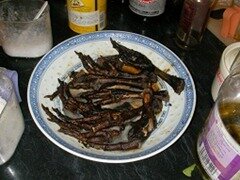 Environmental issues, such as invasive species or global warming, seem to be huge problems and to require equally huge efforts to be solved. But everyone eats, and choosing to eat more sustainably can be a simple way to both nourish the body and improve the environment. Provided, of course, that the menu doesn’t make you turn green.
Environmental issues, such as invasive species or global warming, seem to be huge problems and to require equally huge efforts to be solved. But everyone eats, and choosing to eat more sustainably can be a simple way to both nourish the body and improve the environment. Provided, of course, that the menu doesn’t make you turn green.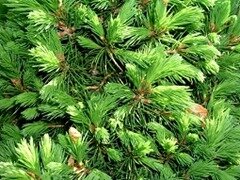 As the magic of the 2010 holiday season fades to memory, once festively adorned Christmas trees lay naked and neglected in backyards and along roadsides. And many other Christmas trees remain unsold in vacant lots. What should be done with all these trees? With a little ingenuity and science, Christmas trees can be recycled in other uses, such as biofuels or even fish habitat.
As the magic of the 2010 holiday season fades to memory, once festively adorned Christmas trees lay naked and neglected in backyards and along roadsides. And many other Christmas trees remain unsold in vacant lots. What should be done with all these trees? With a little ingenuity and science, Christmas trees can be recycled in other uses, such as biofuels or even fish habitat. Prince Charles seems to be the odd man out when it comes to the royal family. He’s been overshadowed by his mother the Queen, his former wife Diana, and now his sons William and Harry. While he might not sell a lot of papers, Prince Charles is still pushing to get the word out about the environment, a cause that he’s championed since the 1980’s. His “Start” initiative will bring together celebrities and green ideas for an eco-minded “Garden Party To Make A Difference” this September.
Prince Charles seems to be the odd man out when it comes to the royal family. He’s been overshadowed by his mother the Queen, his former wife Diana, and now his sons William and Harry. While he might not sell a lot of papers, Prince Charles is still pushing to get the word out about the environment, a cause that he’s championed since the 1980’s. His “Start” initiative will bring together celebrities and green ideas for an eco-minded “Garden Party To Make A Difference” this September. As any host knows, guests leave more than well wishes and fond memories behind. It can take a crew armed with heavy duty garbage bags and disinfectants to clean up after everyone goes homes, and the bigger the celebration, the bigger the mess. An event like the World Cup, a cause for large-scale construction projects and long-distance travel, can easily generate hundreds of tons of waste. Celebrations don't have to harm the environment, however, and a little planning and creativity can make your own party green.
As any host knows, guests leave more than well wishes and fond memories behind. It can take a crew armed with heavy duty garbage bags and disinfectants to clean up after everyone goes homes, and the bigger the celebration, the bigger the mess. An event like the World Cup, a cause for large-scale construction projects and long-distance travel, can easily generate hundreds of tons of waste. Celebrations don't have to harm the environment, however, and a little planning and creativity can make your own party green.  Thousands of people got lucky yesterday and can say that they now own the hottest gadget on the planet, the new iPhone. Now that you’ve got the latest and greatest from Apple, what should you do with your old cell phone? There are a lot of worthy organizations that could use your old phone to generate needed funds or even help a child in the classroom.
Thousands of people got lucky yesterday and can say that they now own the hottest gadget on the planet, the new iPhone. Now that you’ve got the latest and greatest from Apple, what should you do with your old cell phone? There are a lot of worthy organizations that could use your old phone to generate needed funds or even help a child in the classroom.